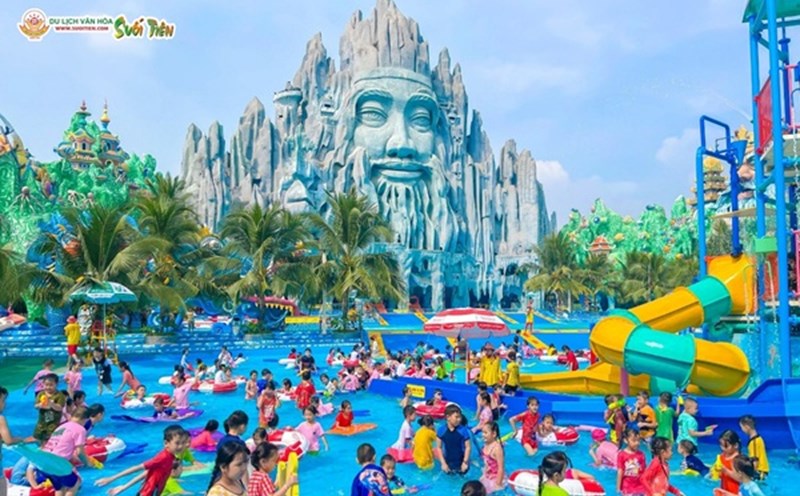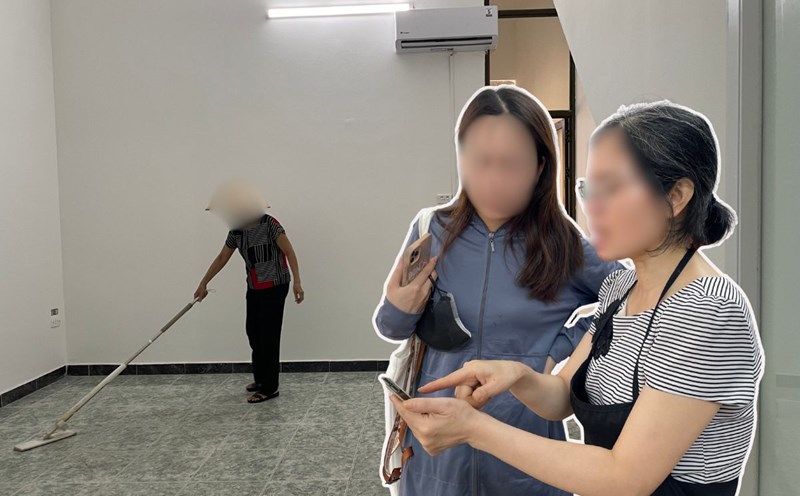From the Cultural Outline to the endogenous strength of the nation
Before the August Revolution, in the context and hot issues of the country, in 2006, General Secretary Truong Chinh helped draft the Vietnam Cultural Outline. This outline is considered the first propaganda and platform of our Party on culture and revolution, with the meaning of enlightening and paving the way for the Vietnamese revolution, especially in the field of ideology and culture; shaping the basic viewpoints and principles for that period and continuing to be supplemented and developed in many years to come.
For more than 80 years, the way of problem-solving the Cultural Outline has been very modern: Culture includes ideology, education and art; the cultural front is one of three fronts (economy, politics, culture), where communists must operate; not only do political revolution but also do cultural revolution; only with a leader of a cultural movement can the Party influence public opinion, and the Party's propaganda can be effective.
Right after the success of the August Revolution, in the first days of the young Democratic Republic of Vietnam, President Ho Chi Minh - national hero, world cultural figure - considered culture as a front, on par with destroying hunger fighters and foreign invaders.
At the first National Cultural Conference in 1946 President Ho Chi Minh said: "Culture must make everyone have the ideal of autonomy, independence, and freedom. At the same time, how should culture make the nation forget itself for the country, forget its own interests for the common good? What should culture do for every Vietnamese person from old to young, both men and women, everyone understands their duty and knows how to enjoy their happiness and should enjoy it? Culture must clear the way for the nation to go".
That view has become a motto and guideline for the cause of building and defending the country of the Vietnamese people.
The history of the revolution has proven that vision. In the resistance war against France and the US, culture has become an invaluable spiritual weapon, a flame to maintain faith and ideals.
Regarding the role of culture and artists in the process of fighting for the country, at the meeting of artists and writers on December 30, 2024, General Secretary To Lam emphasized: During the two long-term resistance wars against French colonialism, the American empire was full of hardship but extremely heroic and proud, many artists and artists held guns, pencils, and instruments, always standing side by side with all classes of people and the entire nation, ready to sacrifice, bravely sacrifice, and take action on the ideological - cultural front.
Famous authors such as Ho Chi Minh, Song Hong, To Huu, Van Cao, Pham Tuyen, Luu Huu Phuoc, Hoang Van, Do Nhuan, Nguyen Thi, To Ngoc Van, Tuong Vy, Tra Giang... and many other famous artists have spread the revolutionary spirit to all regions of the Fatherland, praised the bravery and encouraged the fighting spirit of our army and people on the battlefield, became a great source of encouragement on all fronts, left a deep impression on the people's hearts and a valuable cultural heritage, helping future generations better understand the value of independence, freedom and the sacrifice of their ancestors said the General Secretary.
The 6th National Party Congress in 1986 with the motto of Innovation opened a new era, bringing the country out of crisis and integrating with the world. In that journey, culture once again proved its role in shaping identity, affirming Vietnam's position in the international community.
Resolution of the Central Committee 5 (8th tenure) in 1998 on building and developing an advanced culture with strong national identity is an important milestone, laying the foundation for the cause of comprehensive innovation.
80 years of road scanning - culture is the foundation, the driving force for development
The 13th National Party Congress continues to affirm: Building and promoting cultural values and the strength of Vietnamese people is one of the pillars of sustainable development. Culture is placed on par with politics, economics, society and national defense and security. That proves that after 80 years, the viewpoint of "culture of scanning the way for the nation to go" is still valuable, a guideline for all stages of development.
The XIII Congress documents emphasized the need to build a national value system, a cultural value system, and Vietnamese human standards in the new era. Culture does not stop at preserving heritage, but must create endogenous strength, arouse the desire for development, nurture patriotism, self-reliance, solidarity, humanity, and tolerance.
Practice in recent years shows that, despite facing many challenges - from the COVID-19 pandemic, climate change, to the negative impacts of globalization - culture is still a connecting thread, creating the strength of national unity. Community campaigns, artistic creations, and human values spread in difficulty have proven that culture is a solid spiritual pillar.
Entering the period of extensive development and integration, Vietnamese culture faces many opportunities but also many problems. In particular, there is a risk of losing a cultural identity in the process of globalization. Along with the development of technology and social networks, foreign entertainment products are more accessible, especially for young people and in those cultural products, many products have unhealthy content, even going against Vietnamese traditions and culture.
Currently, one of the top requirements is the development of cultural industries. In the global trend, culture is not only a spiritual field but also a spearhead economic sector. Vietnam needs to turn its heritage and national identity treasure into valuable cultural products, creating competitiveness and contributing greater to GDP.
And the important thing is to build a system of Vietnamese values in the new era. As General Secretary To Lam emphasized, culture must create personality, nurture ethics, intelligence, courage, and nurture the aspiration to build a strong country. This is the central task of culture in the new development period.
Associate Professor, Dr. Bui Hoai Son - full-time member of the National Assembly's Committee on Culture and Society said: "It is time for us to have a baby in art education, not only to create more professional artists, but to form a generation of citizens who know how to love beauty, live humanely and be creative".
Improve people's knowledge and educate the younger generation by promoting education in history, tradition, ethics, and lifestyle; making culture the foundation for shaping the personality of the new generation. Invest in literary and artistic creation, creating conditions for artists to penetrate practice and commit, thereby creating works that are timeless, have strong influence, and arouse national pride.
In addition to preserving and promoting cultural heritage, developing cultural industries is an important task. Vietnam's goal is that by 2045, Vietnam's cultural industries strive to contribute 9% of GDP in revenue and attract 6 million workers, becoming a developed country in cultural industries in the Asian region, while affirming Vietnam's position on the world cultural industry map.
The draft Political Report of the 13th Party Central Committee submitted to the 14th Party Congress sets out the task: "Developing human resources, developing culture to truly become a foundation, an endogenous strength, a great driving force for the rapid and sustainable development of the country".
Over the past 80 years, culture has truly become a beacon to light up the national journey. Culture is an invaluable spiritual resource, an endogenous strength, the bravery and soul of Vietnam. In the new era, culture continues to shoulder a heavy responsibility: both preserving the core character and national identity, nurturing the aspiration for development, and creating soft power for Vietnam to integrate and affirm its position in the international arena.
Culture will continue to shoulder the responsibility of "paving the way for the nation to go" in the journey towards the goal of 2045 - building a strong, prosperous and happy Vietnam.
The 80th Anniversary of the Traditional Day of the Cultural Industry will take place on the morning of August 23 at the Hanoi Opera House. The event not only honors the great contributions of previous generations but also continues and promotes the glorious tradition of the industry.












